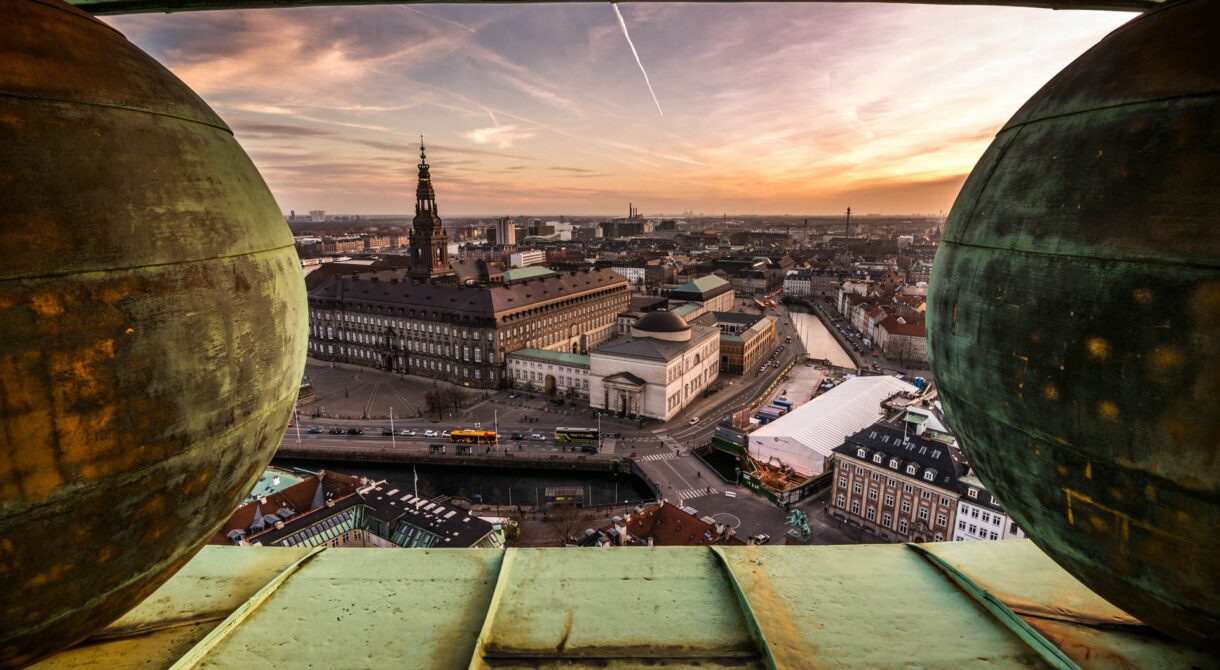This conversation sheds light on Copenhagen Legacy Lab’s mission to extend the influence of global conferences far beyond their immediate scope, showcasing a future where events catalyze meaningful, lasting change.
Can you describe your unique background and how it has prepared you for your role at the Legacy Lab?
My journey to the Legacy Lab is quite diverse. Initially trained as a pharmacist, I ventured into medicinal chemistry for my PhD and then spent 13 years at LEO Pharma, a leading medicinal company in Denmark specializing in skin diseases. I dedicated the first seven years to lab work and moved into project and process management and facilitation hereafter, which were also my primary focus areas during my time at Novozymes. After this, I moved to Healthcare Denmark; a public-private organization focusing on increasing the knowledge of Danish healthcare and life science globally.
My skills in project and process management and facilitation are obviously very relevant in my role at the Legacy Lab. On top of this, since around half of the congresses coming to Copenhagen are within life science, I use my scientific understanding of this area as well as my extensive network to foster collaborations and support the strategic direction of the legacy work.

What is the vision and mission of the Legacy Lab, and how do you contribute to it?
Copenhagen Legacy Lab is dedicated to creating lasting impacts from congresses and events held in Copenhagen, ensuring that all parties involved gain as much value as possible. Within the congress area, our strongholds include life science, green transition, and information & communications technology. We focus on integrating legacy thinking into conference planning early on, ensuring that events not only meet current needs but also contribute to long-term strategic goals. My role is pivotal in identifying and engaging stakeholders to build these legacies, drawing on my comprehensive understanding of the life science sector and my network from various roles.
By bridging the mission of the conference organizers and the interest of the local host or other collaborators, I help to implement innovative ideas that align with both parties. Furthermore, coming from outside the business events and associations world can be an advantage when trying to simplify notions and outcomes that have to do with legacy goals.
We have spent the last few years developing and refining our legacy process. Now we are intensifying our execution efforts, and we aim to integrate legacy thinking early in the planning process, preferably already in the bidding process. Furthermore, we recently expanded our scope to include legacy for Major Events in addition to Congresses.
Can you share details about any significant projects or conferences the Legacy Lab is currently involved with?
One of our flagship initiatives this year is the collaboration with the World Editors Forum at the World News Media Congress, focusing on the Global Youth News Lab. This unique workshop is designed to directly engage Gen-Z’ers in defining the news values that resonate most with their generation. By inviting 30 conference delegates to join 110 students from around the globe at the International People’s College in Elsinore, this effort aims to bridge the gap between traditional news media and the preferences of younger audiences. The workshop’s outcome, the Global Youth News Values, will be presented at the Congress, setting new standards for news outlets targeting young audiences. This initiative represents a pivotal step in our mission to foster meaningful legacies that resonate across generations and industries.
One of our recent examples from Major Events is Copenhagen Gaming Week – a new and recurring festival that covers everything within gaming and esports. Copenhagen Legacy Lab used the event as a platform to support up-and-coming game developers and students. By providing a dedicated area for indie and student games, we showcased 39 emerging games, highlighting Denmark’s creative prowess in the gaming sector. This event not only offered a platform for upcoming developers to present their work but also facilitated direct interaction between creators and their target audience, further cementing Denmark’s position in the global gaming industry. The fact that the event is recurring enables us to take a long-term strategic approach and build a stronger legacy year by year.
These projects exemplify Copenhagen Legacy Lab’s broader strategy of leveraging conferences and events to create lasting impacts. By focusing on areas such as journalism’s future and the burgeoning gaming industry and by engaging with the younger generation, we aim to foster innovation, engagement, and collaboration that extend far beyond the events themselves.
How does the Legacy Lab measure the success of its initiatives, and what future plans do you have for enhancing these measurements?
Measuring the impact of our initiatives is a complex but crucial part of our work. We are currently exploring ways to refine our evaluation processes, including the potential use of artificial intelligence to identify relevant stakeholders and gauge the effectiveness of our initiatives. Our aim is to develop tangible KPIs that reflect the broad impacts of our work, not just in terms of immediate outcomes but also in how we contribute to long-term strategic goals. Moving forward, we plan to continue adjusting our strategies based on feedback and outcomes, ensuring that our work remains relevant and impactful.
More information of Copenhagen Legacy Lab here.
